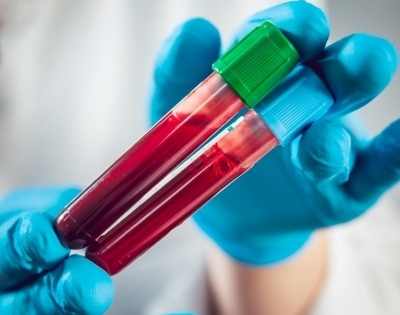IIT Guwahati alumni develop device to diagnose chronic non-communicable diseases
By IANS | Published: October 10, 2023 08:39 PM2023-10-10T20:39:57+5:302023-10-10T20:40:08+5:30
Guwahati, Oct 10 An indigenous point-of-care testing device has been created by Primary Healthtech Private Limited, a company ...

IIT Guwahati alumni develop device to diagnose chronic non-communicable diseases
Guwahati, Oct 10 An indigenous point-of-care testing device has been created by Primary Healthtech Private Limited, a company founded by alumni of the Indian Institute of Technology Guwahati (IITG).
This device is expected to test 25 parameters in the blood to detect early chronic diseases associated with kidney, liver, heart, and pancreas malfunctions.
According to Primary Healthtech CEO Sahil Jagnani, the MobilabTM device, which can run 150 tests on a single charge, is controlled by an IoT-enabled Android app and can be used in even the most remote areas of the country.
As per the World Health Organisation's (WHO) recent report, non-communicable diseases (NCDs) are responsible for almost 41 million (74 per cent) of deaths worldwide.
The goal of MobilabTM, according to the founder, is to speed up early detection, disease management, and treatment while also providing affordable diagnosis to the public.
“In accordance with the Centre's ‘Make in India’ strategy, the device was also anticipated to perform import substitution,” Jagnani said.
He claimed that MobilabTM will make testing affordable at the location of the patient, enabling both early detection and long-term disease management.
At least eleven parameters, including the heart profile's cholesterol, LDL, HDL, and triglycerides, the liver profile's total bilirubin, albumin, and total protein, the kidney profile's creatinine, glucose, and uric acid, and the haematology profile's hemoglobin and diabetic in glucose, have so far been validated in NABL accredited and government labs.
In ten minutes, the device produces data, a digital report, and a patient's electronic health record that can be quickly shared with clinicians.
Disclaimer: This post has been auto-published from an agency feed without any modifications to the text and has not been reviewed by an editor
Open in app